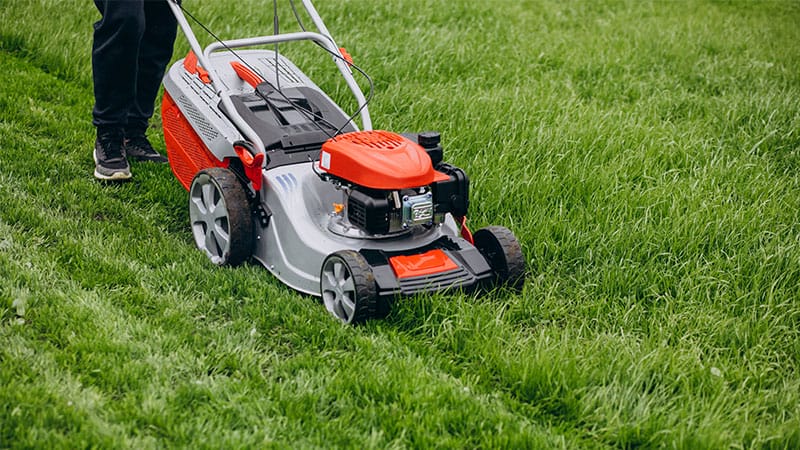In a country with approximately 40 million acres dedicated to suburban greenery, playing fields, and golf courses, the demand for sustainable and efficient lawn maintenance is soaring. The U.S. Energy Department revealed that lawn mowers annually consume an astonishing 1.2 billion gallons of gasoline. Moreover, they contribute to 12% of carbon monoxide emissions, as indicated by the U.S. Environmental Protection Agency. Additionally, a single gas lawn mower contributes over 85 decibels to the country’s noise pollution.
Such alarming data has led several states to enforce bans or restrictions on small gas engines. Cities across the nation have also put bans in place, while homeowners’ associations emphasize curbing noise pollution. Congress, meanwhile, is mulling over potential legislation to enhance noise control programs. This shift could see gas mowers phased out, experts suggest.
The lawn care industry’s landscape is rapidly changing. In 2021, electric and battery-powered mowers accounted for half of the global lawn mower market’s revenue, says Fact.MR. While these mowers are a step forward, they still demand human input.
However, autonomous lawn mowers are breaking new ground according to The Washington Post. Introduced in the mid-1990s as a novelty, the mowers are now being compared to outdoor robot vacuums. They are championed for their ability to reduce air and noise pollution and, according to some, even help in nurturing healthier lawns. However, they aren’t without challenges – they aren’t suitable for all properties, and their price point remains a deterrent for many homeowners.
James Murphy from Rutgers University’s Center for Turf Grass Science highlights the benefits of these mowers. By trimming grass continuously, just a few millimeters at a time, they maintain healthier grass. Studies from Europe corroborate these findings, revealing robot-mown grass to be denser with fewer weeds.
Auto-mowers also have the advantage of depositing tiny, quick-decomposing clippings, which prevents the formation of deep thatch layers, a common issue with conventional mowers. Furthermore, night operations, which are less stressful for the turf, might indirectly prevent diseases by dislodging moisture.
In addition to essentially eliminating a major source of noise pollution and emissions and drastically reducing power consumption, autonomous mowers may have ripple-effect benefits for sustainability.
The lightweight robots can reduce storm water runoff, says Dan Mabe, founder of the American Green Zone Alliance. “Unlike big equipment, they’re not compacting the soil, so it’s able to absorb more water.”
Dan Mabe of the American Green Zone Alliance notes the eco-friendly benefits. These lightweight robots don’t compact the soil, aiding in better water absorption. Illinois-based landscaper Joe Langton, who has adopted auto-mowers, echoes this sentiment. They allow for reduced herbicide usage, and the switch to these robots has also helped reduce his company’s carbon footprint.
One current limitation of most auto-mowers is their reliance on boundary wires to define their mowing zone. However, the landscape is shifting. Newer models, like the Ecoflow Blade and Husqvarna 450X EPOS, are wireless. Despite their heftier price tags – the Ecoflow Blade costing around $3,000 and the Husqvarna model exceeding $6,000 after installation – the convenience they offer is seeing sales figures rise.
Chad Fuhrman of Husqvarna Group sees an increasing trend of older homeowners valuing these mowers to maintain their independence, while tech-savvy younger homeowners appreciate the convenience.
Despite some technological challenges yet to be perfected, Murphy believes that the future is bright for auto-mowers. Langton confirms that homeowners quickly become enamored with their robotic helpers, often giving them whimsical names such as Snips, Casper, or even Albert the 8th.
The next era in lawn care might just be a fusion of greenery and tech, with “pets” that help keep our gardens trim and Earth a bit greener.
More inspiring green news similar to this:


